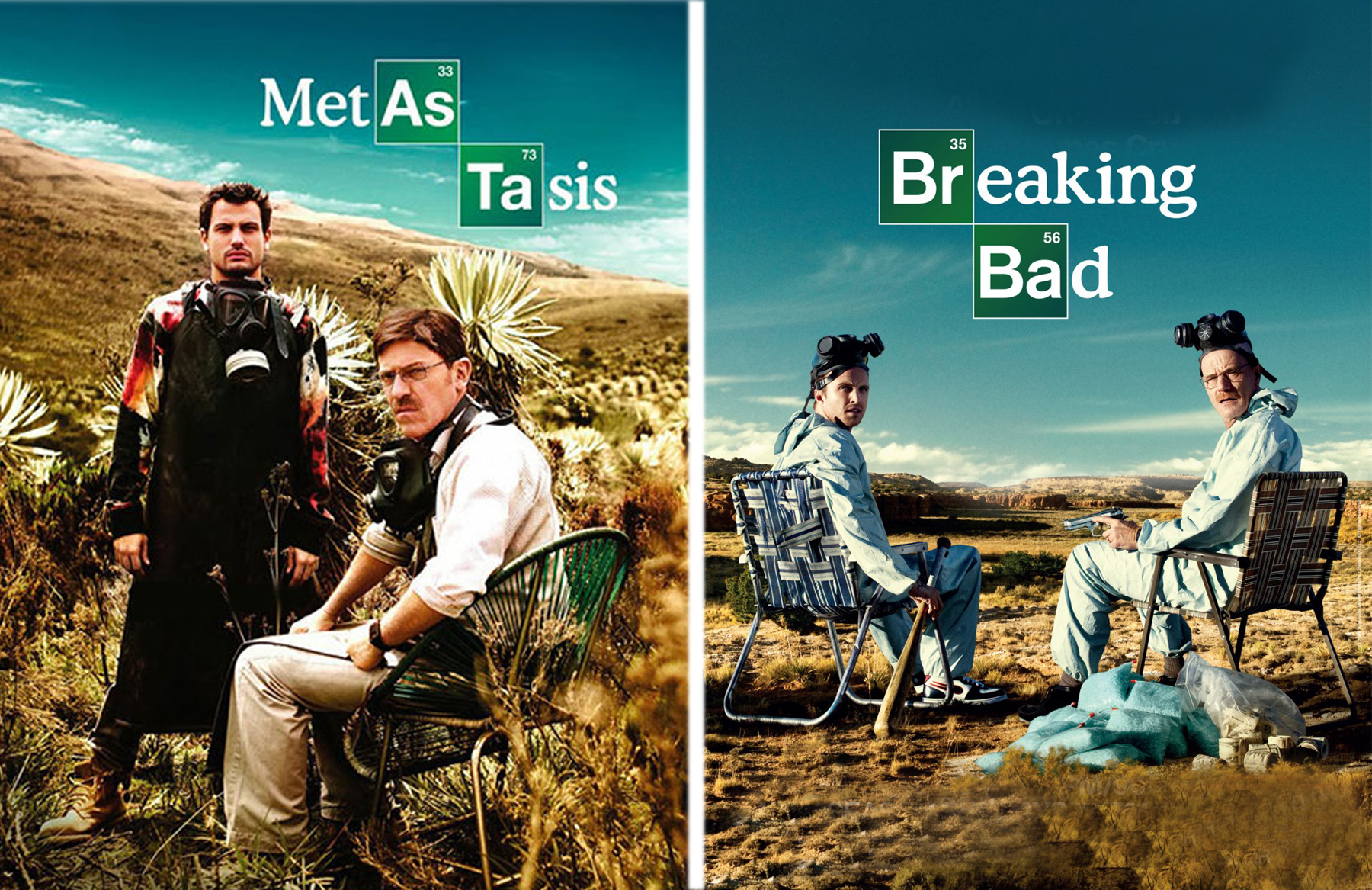
- Industry
Metástasis: How Breaking Bad Spread South of the Border
In today’s global market, remakes and adaptations are the order of the day. But for the Spanish language version of Breaking Bad, it was more a case of duplication. In Hollywood the idea of producing Spanish language versions is as old as talkies. In the early 30s, studios attempted to solve the dilemma of foreign distribution of their films by creating versions that were spoken in other languages but filmed in the very same sets that were used for the original English, following the translated script word for word. During the day the English script would be shot, while the versions destined for Europe or Latin America were shot during the night, swapping out the cast. That method only lasted for a few years, during which Buster Keaton was able to make Spanish, French and German versions of his originally English spoken films, although it was evident that he had not mastered any of those languages.
A variation on that method was employed for Metástasis, a version of Breaking Bad, which was brought to life by Colombian cable company Teleset in 2014 at the request of Sony Pictures Television. The show was originally aired as a telenovela by Caracol in Colombia, Televisa in Mexico and UniMas, a subsidiary of Univision, in the United States. The show then made its way to Hulu and as of June of last year Netflix, where fans of the series that starred Bryan Cranston can compare each of the 62 episodes of each version.
At Sony’s behest, the producers of the remake opted to reproduce creator Vince Gilligan’s (who had no involvement with the project) scripts almost literally, limiting themselves to minor changes to make the content more accessible to Spanish speaking viewers. The funny thing is that by the time Metástasis aired, Breaking Bad was already hugely popular in Latin America and was consecrated in the United States, not only by the passion that it evoked in fans, but by the numerous amounts of awards it had managed to win.
Even before Metástasis’ debut, Breaking Bad had won the Golden Globe for Best Television Series and Best Actor for Cranston’s performance (he had already been nominated in the same category 3 years before). A similar scene played out at the Emmys, where the show took 6 awards in 2014 (out of 16 nominations), but Cranston and Aaron Paul already had received two awards from the Academy of Arts and Sciences of Television by the time their Colombian counterparts; Diego Trujillo and Roberto Urbina, had started filming their own episodes
In Metástasis the action is moved from Albuquerque to Bogota and the famous R.V. is replaced by a school bus. The show tells the story of Walter Blanco (Trujillo), a chemistry teacher who upon learning that he has cancer discovers that his particular skillset can come in handy to raise funds for his treatment. Jesse has now become Jose (Urbina), Skyler turned into Cielo Blanco (Sandra Reyes) Hank Schrader into Henry Navarro (Julian Arango) and Marie to Maria (Constanza Carmelo). Tuco Salamanca, the nefarious leader of a Latino gang brilliantly portrayed in Breaking Bad by Raymond Cruz, keeps his name in Metástasis and is brought to life by the great Mexican actor Damian Alcazar.
In this Colombian version it was Frank Ramirez who portrayed Hector Salamanca, in contrast to Mark Margolin who played the same role in Breaking Bad, and who seemingly could barely speak any actual Spanish. A similar scenario occurred with Manuel Gomez-Alvarez, who is responsible for playing Gustavo Cortez, the Colombian version of Giancarlo Esposito’s Gustavo Fring. Esposito was born in Denmark to an Italian father and an American mother and as a result struggled to speak Spanish in every episode despite his best efforts to master the foreign language.
Some fans will undoubtedly want to compare Saul Goodman to Saul Bueno, who has his own television show in Metástasis, and Mario Rojas to Mike Ehrmantraut, the actual stars of Breaking Bad seem to show little interest in seeing how their Colombian counterparts treat the characters that made them famous. In a recent chat with GoldenGlobes.com, Cranston confessed to never having seen Metástasis nor having much of an idea in terms of the differences and similarities between the shows. The same occurred with Anna Gunn, who in a long interview about her most recent film, Equity, admitted to not having heard of Reyes but showed interest in one day seeing her work.

